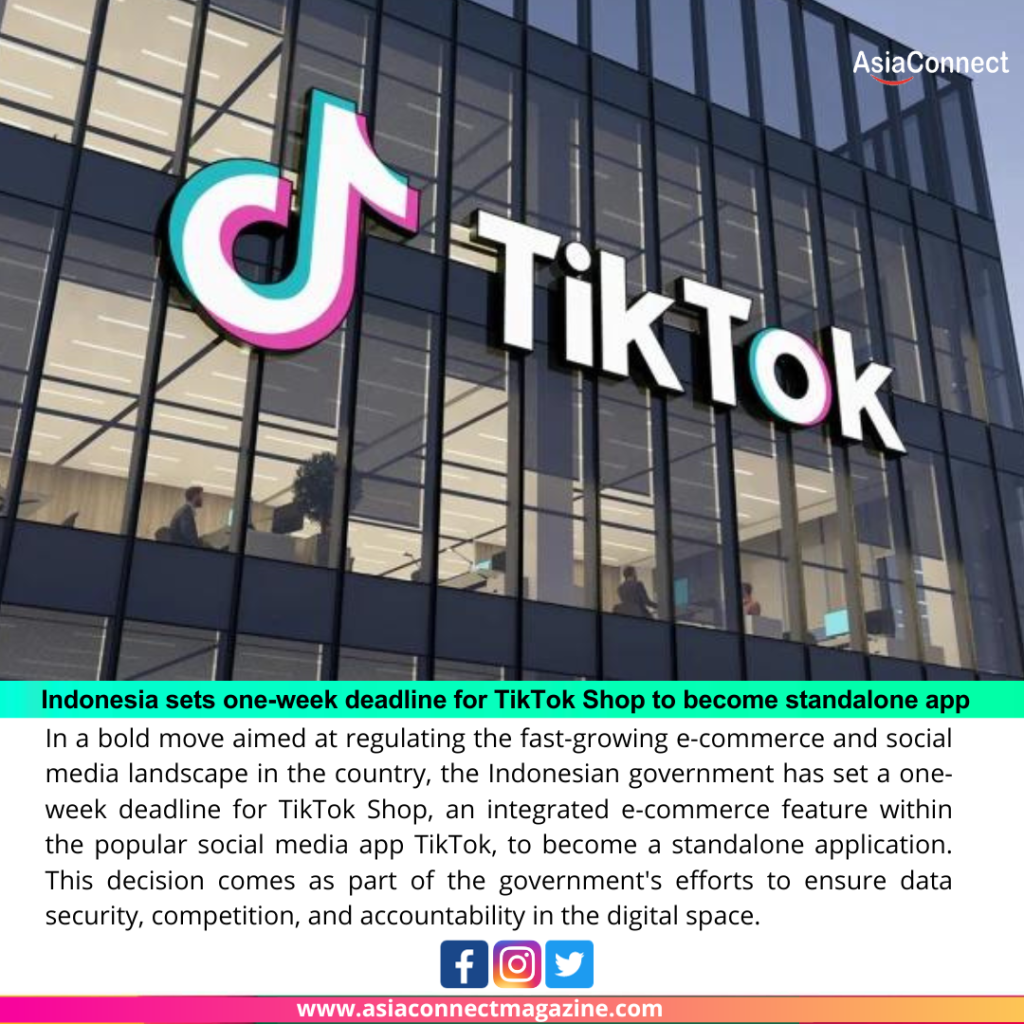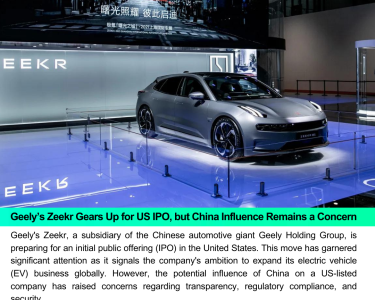
Indonesia Sets One-Week Deadline for TikTok Shop to Become Standalone App
In a bold move aimed at regulating the fast-growing e-commerce and social media landscape in the country, the Indonesian government has set a one-week deadline for TikTok Shop, an integrated e-commerce feature within the popular social media app TikTok, to become a standalone application. This decision comes as part of the government’s efforts to ensure data security, competition, and accountability in the digital space.
TikTok Shop, launched as a feature within the TikTok app, allows users to browse and purchase products directly from the platform. It has gained significant popularity in Indonesia, reflecting the broader trend of social commerce that combines social media and online shopping.
The government’s decision to mandate TikTok Shop’s transformation into a standalone app underscores its concerns about data privacy and competition within the digital sphere. As a standalone app, TikTok Shop will be subject to the same regulatory requirements and oversight as other e-commerce platforms in Indonesia.
Data security is a primary concern for the Indonesian government, as it strives to protect its citizens’ personal information from potential misuse. By separating TikTok Shop from the main TikTok app, the government aims to have more control over the data collected and shared by the platform.
Additionally, this move is seen as an effort to level the playing field in the Indonesian e-commerce market. TikTok Shop’s integration within the TikTok app could potentially give it an unfair advantage over other e-commerce players. By requiring TikTok Shop to operate independently, the government hopes to promote healthy competition and ensure a fair marketplace for all e-commerce businesses.
The one-week deadline set by the Indonesian government is a clear signal of its commitment to swiftly address these concerns. It also reflects the government’s assertive approach to regulating the digital economy, especially in the wake of the COVID-19 pandemic, which has accelerated the growth of e-commerce and digital platforms.
TikTok, owned by the Chinese tech company ByteDance, has faced regulatory challenges in several countries, including Indonesia. Concerns about data privacy, content moderation, and national security have prompted governments to scrutinize the app’s operations and influence.
In response to Indonesia’s mandate, TikTok Shop is expected to expedite the process of becoming a standalone app. This transition will likely involve separating its infrastructure, user accounts, and data from the main TikTok app. It will also require TikTok Shop to comply with all relevant Indonesian laws and regulations related to e-commerce.
The move to create a standalone TikTok Shop app could have implications for users and businesses alike. Users may experience a change in the user interface and functionality as the shopping feature becomes a separate application. Businesses using TikTok Shop for marketing and sales may need to adapt to the new platform and its policies.
Indonesia’s approach to regulating digital platforms like TikTok Shop reflects a broader global trend of governments asserting control over the digital economy. The intersection of social media, e-commerce, and data privacy has raised complex regulatory challenges that governments are working to address.
It remains to be seen how TikTok Shop and its parent company, ByteDance, will respond to Indonesia’s mandate and whether similar regulatory actions will be taken by other countries. As the digital landscape continues to evolve, governments are likely to play an increasingly active role in shaping the rules and norms governing the digital economy, with a focus on data security, competition, and accountability.




